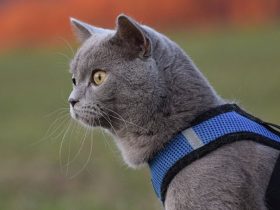BASENJI PUPPIES AND DOGS
FAST FACTS
- Nickname: Barkless Dog
- Breed Group: Hound
- Height: 16-17 inches
- Weight: 21-24 lbs
- Life Span: 12-16 years
BASENJI INFORMATION
BASENJI BASICS
WHERE ARE BASENJIS FROM?
According to DNA analyses and depictions of their breed on pharaohs’ tombs from 3600 B.C., Basenjis are one of the oldest dog breeds. They were first imported from Central Africa (today, the Congo) in the 1930s and then quickly bred in North America and Canada.
HOW MANY DIFFERENT TYPES OF BASENJIS EXIST?
There is only one type of Basenji, excluding colour variants.
WHICH BREEDS MIX WITH BASENJIS?
- Beagle (Basenji + Beagle)
- Corsengi (Cardigan Welsh Corgi + Basenji)
- Eskenji (American Eskimo Dog + Basenji)
- Great Dasenji (Great Dane + Basenji)
- Labrasenji (Labrador Retriever + Basenji)
BASENJI LIFESPAN
Basenjis have a lifespan of around 12-16 years.

BASENJI SIZE (HEIGHT & WEIGHT)
Small to medium-sized dogs, Basenjis typically weigh 21 to 24 pounds and are 16 to 17 inches tall.
BASENJI APPEARANCE
WHAT COLORS DO BASENJIS COME IN?
Basenjis are red and white, black and white, brindle, or tricolour.
HOW MUCH DO BASENJIS SHED?
Basenjis are minimal shedders.
DO YOU NEED TO GROOM A BASENJI?
Basenjis don’t need a lot of grooming. For this breed, regular brushing and bathing are sufficient. However, they are a very tidy breed, and like cats, they frequently groom themselves.
BASENJI TEMPERAMENT, PERSONALITY & TRAINING
HOW MUCH DO BASENJIS BARK?
Although they are often pretty quiet canines, the Basenji is proudly known as the “barkless dog” because, rather than barking, they have a distinctive howl or bray that sounds like a yodel. But, of course, you can teach any dog not to bark with the proper training and exercise.

ARE BASENJIS GOOD WITH KIDS?
Although they might be distant around young children, Basenjis are great with older children because of their high activity levels.
As with any breed, it is advised that your youngster always is under adult supervision when dealing with your Basenji to keep everyone safe.
ARE BASENJIS SUITABLE AS FAMILY PETS?
Basenjis are autonomous individuals. They are excellent companions for tiny families that value a big dog’s independence and a cat’s aloofness. They like to form bonds with only one or two humans simultaneously.
ARE BASENJIS GOOD WITH CATS?
Basenjis were selected for their high prey drive, which isn’t usually a good match for cats. Although each dog (and cat) has unique tastes and temperaments, you may be reasonably confident in your choice of pet.
If adequately socialised or introduced to your cat at an early age, dent your Baseji should get along nicely.
DO BASENJIS TRAIN EASILY?
Training a Basenji can need persistence, tolerance, and humor as an independent, stubborn breed.
BASENJI HEALTH
DO BASENJIS HAVE A LOT OF HEALTH PROBLEMS?
Due to a limited initial genetic breeding pool, Basenjis have various health difficulties despite being strong canines with a long lifetime.
WHAT DISEASES ARE BASENJIS PRONE TO?
- Hip or Elbow Dysplasia: Hip and elbow dysplasia are two of dogs’ most prevalent skeletal disorders. Both conditions cause aberrant growth or malformed elbow or hip joints and are related disorders. The joints and sockets can’t effectively connect because of the irregular form, so they rub and grind instead of moving quickly. Although joint instability is the primary symptom of hip dysplasia, elbow dysplasia frequently results in bone or cartilage fragments coming free and irritating the joint tissues. Dysplasia-related rubbing can lead to several problems, including discomfort, lameness, and secondary osteoarthritis. If discovered before the beginning of arthritis, surgery can be performed to repair the joint. If you are rescuing a Basenji, have her examined by a veterinarian to see whether she has dysplasia or is susceptible to developing it. This will help you choose the kinds of activities and exercises she can endure.
- Eye problems: Persistent pupillary membranes, which are strands of foetal tissue that cross over the iris, progressive retinal atrophy (PRA), which affects the retina and eventually results in blindness, and optic nerve colombas, which is a condition in which the optic nerves, the part of the eye that is responsible for vision, do not develop normally and leave a hole close to the optic disc.
- Others: Anemia, a lack of healthy red blood cells, hypothyroidism, a thyroid disorder that results in low hormone production and may cause obesity, low energy, and a brittle coat, inguinal and umbilical hernias, defects of the abdominal muscles that may cause internal organs to become trapped and swell under the skin of the belly or groyne, are other issues to be aware of. Fanconi syndrome is a kidney disorder that prevents the body from processing sugars.
PURCHASING VS ADOPTING A BASENJI
HOW MUCH DOES A BASENJI COST?
A Basenji may be adopted for a lot less money than it would buy one from a breeder. For example, to cover the costs of care for the dog before adoption, a Basenji adoption costs about $300. Contrarily, purchasing a Basenji from a breeder may be expensive. They often range in price from $800 to $2,500, depending on their breeding.
WHERE CAN I FIND A BASENJI TO ADOPT?
A rescue specialised in Basenjis would be the most straightforward place to find a Basenji to adopt.
BASENJI RESCUES AND SHELTERS
Local animal shelters and rescues frequently have many wonderful Basenjis available for adoption.
WHERE CAN I FIND A BASENJI BREEDER?
Before you purchase a puppy from a breeder, we advise you to rescue a Basenji (or any other dog). In need of homes are the millions of purebred dogs who are homeless around the nation. Adopting a Basenji may significantly alter both the adopter’s and the dog’s lives.
Getting a puppy from a reputed breeder is safer if you still have doubts and want to buy a Basenji from a breeder. When working with a breeder, be sure that the breeder you’re buying from genetically tests their animals. You should also double-check the puppy’s health records. Finally, ensure the breeder will return any animals they sell if they cannot keep them in their home for whatever reason and confirm that they are dedicated to finding those animals’ new homes if necessary.






